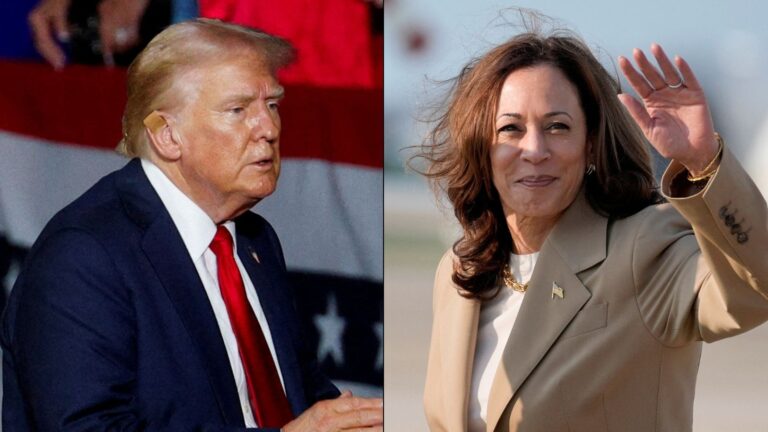US intelligence and national security experts told DW that it is entirely to be expected that foreign powers will try to interfere in the 2024 presidential election.
While most of the information about 2024 election interference is classified, there are official comments that back up the expert reports. Federal Bureau of Investigation Director Christopher Wray said in February that a number of foreign powers have expressed an interest in the November 5, 2024 election.
A report released in April by the Microsoft Threat Analysis Center (MTAC) said that while foreign interference has begun slowly this year, online threats, particularly from Russian actors, are already being seen.
Governments typically interfere in elections to undermine the credibility of American democracy, distract Washington from domestic issues, and change policies to favor their own interests.
“Massive” interference in the 2016 US elections
According to the Mueller special counsel’s report into Russian interference, Russian interference in the 2016 US presidential election was “wide-reaching and complex,” with Russian hackers using bots to spread polarizing misinformation on social media and breaching the Democratic National Committee’s servers.
Since the 2016 election, which many experts say opened up a new dimension of election interference via the internet, U.S. intelligence agencies have “increased the priority assigned to foreign election interference and reorganized to ensure that reports from a variety of sources are shared and evaluated in full context by expert teams,” said Steven Sulick, a former Central Intelligence Agency and National Security Council official.
Social media companies have also worked with the U.S. government over the past eight years to patrol their sites for signs of foreign election interference and have beefed up their threat analysis divisions.
One of the latest examples of this cooperation was announced at the Munich Security Conference in February, when executives from Amazon, Google, Meta, TikTok and others signed an agreement agreeing to take “reasonable precautions” to prevent AI tools from negatively influencing global elections.
Russia is likely to take center stage in 2024
Sulick, who directs the Intelligence Studies Project at the University of Texas at Austin, said he thinks Russia will probably be a major player in any foreign attempt to interfere in the election.
“President Putin finds himself increasingly embittered and diplomatically isolated,” he said. “There is no question that the Russian leader would prefer that Donald Trump win the November election.”
Donald Trump is the Republican presidential nominee and current Vice President Kamala Harris is the presumptive Democratic nominee.
Sulik said Putin has no interest in the United States rallying NATO allies to defend Ukraine and that he has “everything to gain and very little to risk” by interfering or disrupting the upcoming elections.
China, Iran and Cuba will also try to influence the outcome, but their efforts will likely be on a smaller scale, Sulik said. China may try to influence a particular election, but “it’s unlikely to take the same risks as Russia,” he said.
Sulik said he expects Iran, Cuba and other countries will likely deploy less sophisticated, issue-focused social media operations around the elections.
David Dunn, professor of international politics at Britain’s University of Birmingham, agreed, adding that Iran’s position in the upcoming nuclear race is less clear than Russia’s, given the Gaza conflict.
“From Tehran’s perspective, neither administration looks good,” he said.
But without evidence of specific threats to the classified election, it’s hard to estimate the scale of potential interference in the 2024 election, said Cori Zolli, research director at the Institute for Security Policy and Law at Syracuse University in New York.
“There’s no question that most of America’s peer competitors — Russia, China, Iran and other countries — have an interest in the U.S. elections” and are probably already launching misinformation campaigns online, Zolli said.
But, she said, “it’s very difficult to get an accurate sense of the scale of these operations.”
“It’s very hard to gauge the scale of it unless you just go after the Instagram account of the Russian Internet Research Agency or look at China-sponsored organizations, NGOs, so-called private organizations that are tied in a roundabout way to the Chinese Communist Party,” she said.
Will 2024 be a ‘deepfake’ election?
U.S. officials, including the FBI director, have expressed concern that advanced generative AI and highly convincing deepfake videos could play a bigger role in the upcoming election than in previous years, but the MTAC report outlining technological threats to the election concluded that this is unlikely.
Deepfakes are videos that are manipulated to make people appear to say or do things they did not in order to spread misinformation.
“Findings to date suggest that the hypothesis that mass-produced synthetic deepfake videos could cause mass deception or widespread confusion is not supported,” the report said.
“Even if sophisticated deepfakes were created to influence the November election, the tools used to manipulate them are likely not yet on the market,” the authors write.
But it is inconceivable that this won’t happen before the election, the authors added, noting that “increasingly sophisticated video, audio, and image AI tools are coming to market almost daily.”
The report said the online fakes that audiences are most drawn to today are typically the same types of fakes that bad actors have been using for decades.
“Fake news stories stamped with false media logos – a typical tactic used by Russian actors – garnered several times more views and shares than any of the fully synthetically generated AI videos we observed and evaluated,” the authors wrote.

